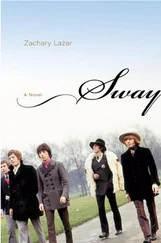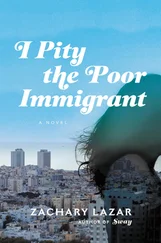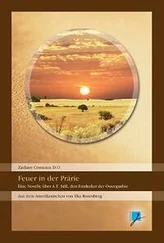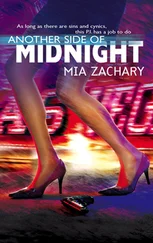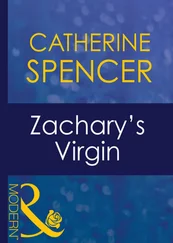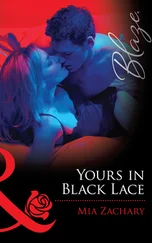“Hito wants to meet with you this afternoon. We have to go to the lab. I think I know what he is going to offer you, Zack. Pull yourself together. You have to pull yourself together, man. This is important. You start in New York. You start up so high. You start your life over. You’ll work with Benzin, you bastard. This is a one-in-a-million chance. Life goes on, Zack.”
The camera runs through ads and posters on the walls of the station. It’s nice that they have classical music playing as a background, a violin and orchestra. Classical music should play in every train station and every airport, damn it. Every departure needs a soundtrack.
There’s a poster advertising an Italian movie entitled Life Is Beautiful .
Our train arrives. Stella gets in first.
“Zack, do you hear me!?” Danny blocks my view. “ Do y ou hear me? ”
It’s hard to ignore his presence now. And I should not ignore Danny. Danny is a friend. I get up, pain pulsates in my head, life is beautiful. I press the left arrow on the remote and rewind a little. There it is —Life Is Beautiful. I push pause. The frame Life Is Beautiful freezes on the screen in one trembling digital pause.
“I can hear you, Danny, my friend! Hito, Benzin, photography, advertisement, success, dreams, success. Life is beautiful, Danny.”
“Excuse me?” Danny doesn’t understand what’s going on. Danny doesn’t understand that life is beautiful.
“Where is my money, Danny? Bring the money. And do you have something for a headache?” Danny goes to the kitchen. I hear cabinet doors slamming and water running; Danny comes back with my three stacks of bills, two pills in one hand, and a glass of water in the other. I chew the bitter aspirins, caress my money, push pause again, and the film starts.
I get on the train after Stella. On the upper step, before I go in, I turn around and gesture to the camera to come closer. The camera jumps to Stella, who waves goodbye, then returns to me. I impatiently gesture to Danny, who is holding the camera, to come closer. He does.
Do I need help?
“Nichts,” I say and shove the three stacks in his hands.
He panics and pushes them back at me. Am I out of my mind?
Nichts ! No. I don’t touch the money.
Danny tries to hand it back.
I don’t care.
He refuses to take the money.
I laugh.
He thrusts the stacks back in my lap.
I tell him that if he doesn’t take it, I’ll throw it on the rails.
What rails?
The rails.
The rails?!
The rails, Danny. The rails.
Danny throws his arms in the air and almost starts crying. Zack, there are no rails in here.
It’s falling, Danny, it’s falling, the money’s falling, I’m dropping it, it’s falling onto the rails.
Danny shakes his head, he doesn’t understand.
I reach out and am about to drop the money between the train and the rails. It’s falling, Danny.
He takes a deep breath, reaches out, and takes the money. But I can’t accept it, he says.
You will.
Zack, this is a hell of a lot of money!
Take it, go to school, and make art for the rest of your life. Life is beautiful, Danny.
I push my friend aside. I have to go. There, I’m already on the train. Thank God it’s almost empty. I hear a whistle. We take off. I look around for Stella, I see her sitting by the window. I pull a bottle of water from my backpack, sit next to her, and embrace her winter-phobic shoulders. She smiles, drinks, and rests her head on my chest.
We watch the world outside through our reflections.
THE END
Acknowledgements from the Author
My sincerest thanks to:
— my wonderful translator Angela Rodel, with whom I share the love of music, words and — amazingly — a birthday. Is it because we are astro-related, or is it just that you can read my thoughts in both languages?
— my weekly coffee-and-almond-croissant literary “circle”—Arthur Salm and Jennifer de Poyen, talented writers, the sharpest editors, and above all, my best friends. I owe you both so much.
— Elizabeth Kostova, a great writer and a gentle cultural diplomat with her own literary embassy, the Elizabeth Kostova Foundation, as well as the wonderful people running it.
— Svetlyo Zhelev, my awesome Bulgarian publisher and friend; also everybody from Ciela Publishing— Nazdrave!
— Maya Sloan — the talented, gifted, and funny as hell “Burn Sister” of mine.
— Mariana Juliette — a powerful generator of genuine positivity, a true friend without borders — please accept my deepest gratitude.
— my many thousands of Bulgarian fans— Blagodaria!
— my film producers — Boris, Viktor, and Georgi — you saw the movie between the lines.
— Chad W. Post and Nathan Furl for saving the day one particular Wednesday afternoon, just before Happy Hour.
— Open Letter Books for giving me this opportunity.
— Kaija Straumanis.
— my Bulgarian editor and dearest friend, Pepa Georgieva — I don’t know if I would have ever written this book if it hadn’t been for you. Your merciless editing helped me tremendously.
— thank you, Sara, for being a kind, extremely intelligent and funny kid, AND for being my beautiful daughter. I love you “from the depths of the sea, to the heights of the sky,” remember?
And finally, thank you, Silvia — for everything. Always.
p. s.
I grew up in a country whose language is spoken by fewer than nine million people. Most of the literature that shaped me as a reader and an individual, and later as a writer, was in translation, mostly English works in Bulgarian.
This translation of 18 % Gray from Bulgarian to English is, in a way, my chance to give back what’s been borrowed, a raindrop returning to the ocean it came from.
Zachary Karabashliev is a Bulgarian-born novelist and playwright, now living and writing in the U.S. His debut novel— 18 % Gray —is a bestselling title, winner of the VIK prize Novel of the Year, and one of the 100 most-loved books of all time by Bulgarians in the BBC campaign “The Big Read.” He is also the author of the short story collections A Brief History of the Airplane and Symmetry , as well as the awarded stage plays Recoil and Sunday Evening . He also wrote the screenplay for the film adaptation of 18 % Gray .
Angela Rodel is the translator of The Apocalypse Comes at 6 P.M. by Georgi Gospodinov, Party Headquarters by Gerogi Tenev, and Thrown into Nature by Milen Ruskov. She was awarded a 2010 PEN Translation Fund Grant for her translation of several stories from Tenev’s Holy Light .




